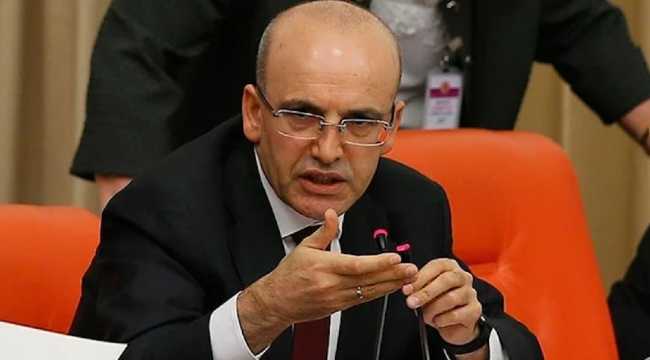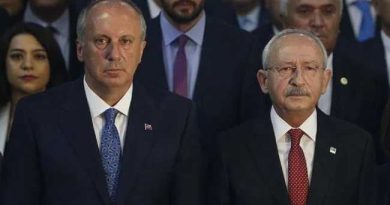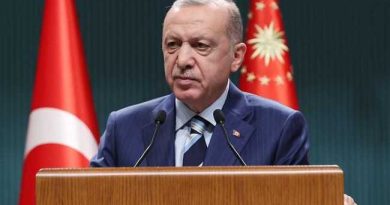New finance minister of Turkey to take over plenty of financial problems

Mehmet Simsek who is expected to take the seat of the Ministry of Treasury and Finance, will take over a wreckage in economy, as commented by some experts. While the risk of a balance of payments crisis is waiting at the door, the picture of reserves, inflation and budget deficit are raising alarms. Also, President Erdogan is said to expect Simsek to attract hot money and foreign capital.
Mehmet Şimşek, who said goodbye to the cabinet on July 10, 2018, is expected to take over as the Minister of Treasury and Finance, again.
Simsek, who held various ministerial positions related to the economy in the AK Party governments during the 2007-2018 period, was not assigned a post in cabinet after the transition to the Presidential government system in 2018, when responsibility for the economy was transferred first to Berat Albayrak, then to Lutfu Elvan, and then to Nureddin Nebati, a name close to Albayrak.
THE FIRST PROBLEM IS THE RISK OF A BALANCE OF PAYMENTS CRISIS
With the successful completion of the election operation now, Mehmet Şimşek was called to duty in order to avoid a possible crisis.
With the opening of the credit taps before the election, the foreign trade deficit, which increased to $ 56.1 billion in the first five months of 2023 and reached $ 122.3 billion in the last two months, as well as the current account deficit, which increased to $ 54.2 billion in the last two months, and the external debt, which reached $ 203 billion, which must be dealt with in 1 year, are among the factors that increase the risk of a payments crisis.
THE SECOND PROBLEM IS RESERVES AND KKM
In turn, the gross reserves which have decreased by $ 30.3 billion since the beginning of the year to $ 98.5 billion, net reserves, which have decreased to $ -4.4 billion, and net reserves excluding swaps, which have decreased to $ -60.5 billion, increase the risks.
The volume of TL 2 trillion 499 billion (equivalent to USD 125.3 billion) accumulated in exchange rate protected deposits (KKM), which were commissioned in December 2021 to curb the increase in exchange rates, also draws attention as an important element of risk.
In July 2018, when Şimşek handed over the job, the CBRT’s gross reserve was $102 billion, its net reserve was $28.7 billion, and the net reserve excluding swaps was $27.5 billion.
The net loss in net reserves excluding swaps was $88 billion in the last 5 years.
The CBRT currently has $ 43.2 billion in debt in its reserves, which were taken as swaps and deposits from “friendly” countries.
THE THIRD PROBLEM IS EXCHANGE RATES AND INTEREST RATES
How the exchange rates and interest rates will move is one of the most controversial topics in the market.
The exchange rate has been suppressed with the CCP using (spending) CBRT reserves , but the exporter wants an increase in the exchange rate for a competitive advantage, and the foreign investor wants an increase in the exchange rate for entry into the country.
On the other hand, there is a risk that the exchange rate increase will increase the problems in the budget through the KKM (Currency Protected Deposits) and inflation through price increases.
In interest rates, all balances have been turned upside down. While the CBRT’s policy interest rate is 8.5 percent, the interest rates on consumer loans and deposits in the market have increased to over 40 percent.
Although some of the commercial loan interest rates are at 15 percent due to Decrees, some of them are quite high, and there are complaints about access to credit problems among the capital segments.
It seems likely that possible interest rate increases will strain the corporate sector and slow down growth by reducing household consumption.
The release of Treasury bond rates, which remained low due to regulations, may also strain bank balance sheets and increase the Treasury’s interest spending.
THE FOURTH PROBLEM IS INFLATION
Inflation, which rose to a 24-year peak of 85.51 percent in October 2022 (even in the TURKSTAT data) and decelerated to 43.68 percent in April 2023, due to the suppression of exchange rates, is among the topics of problems waiting to be solved.
Inflation, which was 15.39 percent in July 2018, has been high for the last five years. The cumulative percentage of CPI in the last five years was 264.15.
THE FIFTH PROBLEM IS THE BUDGET DEFICIT
One of the problems on Simsek’s desk when he takes office will be the budget deficit, which has increased rapidly in recent months.
The twelve-month budget deficit stands at TL 502.2 billion as of the end of April, and the deficit is expected to grow due to the steps taken before the election and the earthquake.
Although it is difficult to cut public spending because there are local elections in 9 months, it seems likely that new taxes and privatizations will be imposed on people and austerity steps will be taken.
THE SIXTH PROBLEM IS HOT MONEY
The main thing that Erdogan expects from Şimşek is to attract foreign hot money.
Erdogan said in December 2021, “With the new economic model, we are now pushing the hot money policy, which causes high interest rates, with the back of our hands.”
Erdogan also said, “There are global funds entering the country on a short-term basis; that is, we call it hot money. This hot money can temporarily lower the exchange rate. But it is not ideal for us. After a while, the exchange rate will rise.” But immediately after the election, he made the expected U-turn, promising “Financial management with an international reputation.”
The economic administrations of Mehmet Şimşek and Ali Babacan have been frequently criticized by Erdogan himself and his economic team over the past five years for being “based on hot money, current account deficit and foreign debt”.
Erdogan is now waiting for Simsek to bring hot money, but Western capital, which has taken its positions in Turkish stocks and bonds to a historic low, is likely to wait for valuations to fall in dollar terms, both with confidence in policies and exchange rate and interest rate increases.
It seems likely that various concessions will be made in foreign policy to attract Western capital (like the case was with Gulf capital) and that cooperation with the United States will be increased in the new period.





